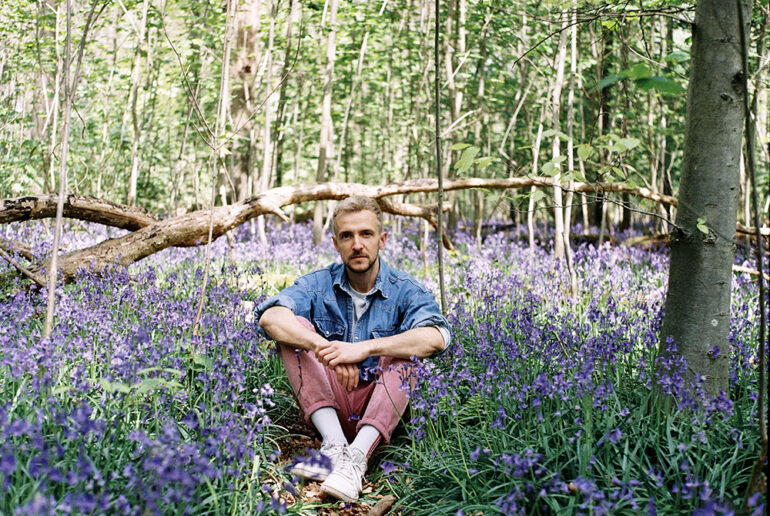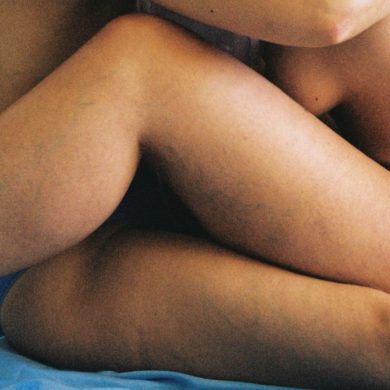Italian-born and Berlin-based photographer Andrej Russkovskij AKA Andrea Russo questions the Berlin “cool” with his ongoing series “Berlin Kids” and discusses with us what it takes to take honest and raw portraits of people beyond social constructions.
Analog photography is a liberating and meditative mechanism for Andrej who combines it with his daily job as a vet surgeon. He defines his style as intimate and soft, and shooting film allows him to slow down and be in the present moment, something he feels is not quite as possible through digital processes.
Last year he launched the BLNKDZ MAGAZINE displaying a compilation of portraits of Berlin friends taken in the past years and, last June he took part in the exhibition “Fantastic Playground Berlin” organised by @iheartberlin together with other Berlin creatives.
Welcome to Andrej’s colorful family album!
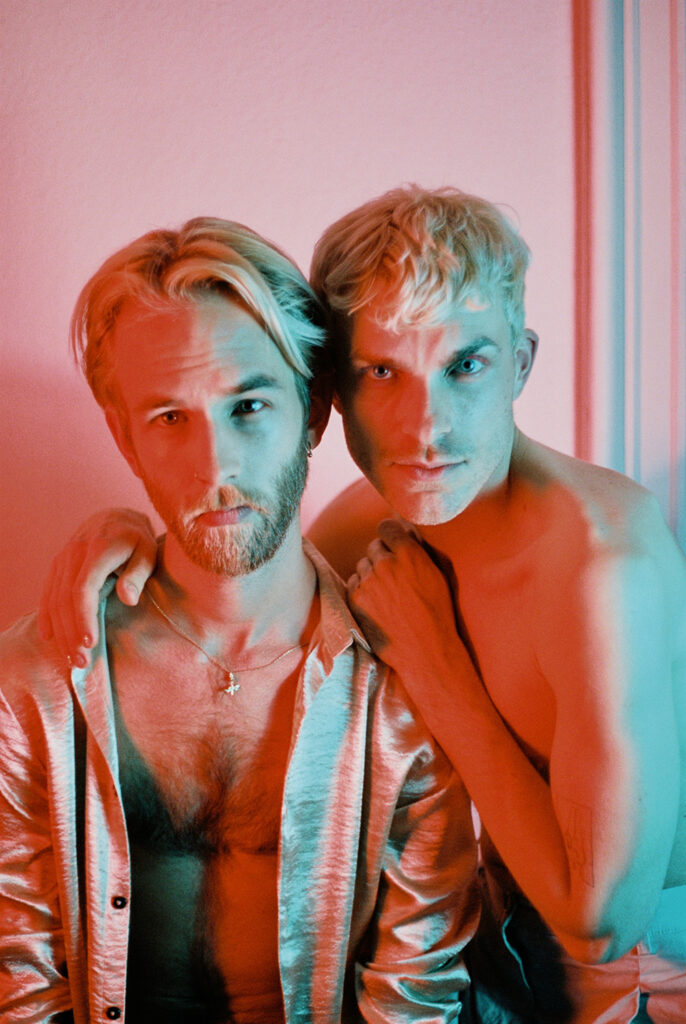
When did you begin to be interested in photography? How did it happen? Was it a fortuitous accident or a premeditated chosen path?
It was very spontaneous. I never thought that it could be developed this way. It happened the year I went to New York with my brother: I was still at uni so it was probably December 2010 when I just got this Diana Mini from Lomography. Honestly, back then, I didn’t have a clue about photography, I never looked into how to shoot photographs, but I just remember seeing some pictures with the typical high contrast and the light leaks and everything, and I was absolutely fascinated. So I took my Diana Mini to New York and I started experimenting with it. I can say that I had some good results and that kind of pushed me to shoot a bit more. To my surprise, my photographs started being featured on the website of Lomography and getting very good feedback, to the point that after less than half a year, Lomography started using my pictures to advertise their products.
I kept taking photos and learning from my mistakes, and I made a lot of mistakes! I wanted to find out by myself how to get good results. When I graduated I started shooting with the Lubitel 166, a medium format camera, and I realized that what I really wanted and made me feel good was to shoot portraits.
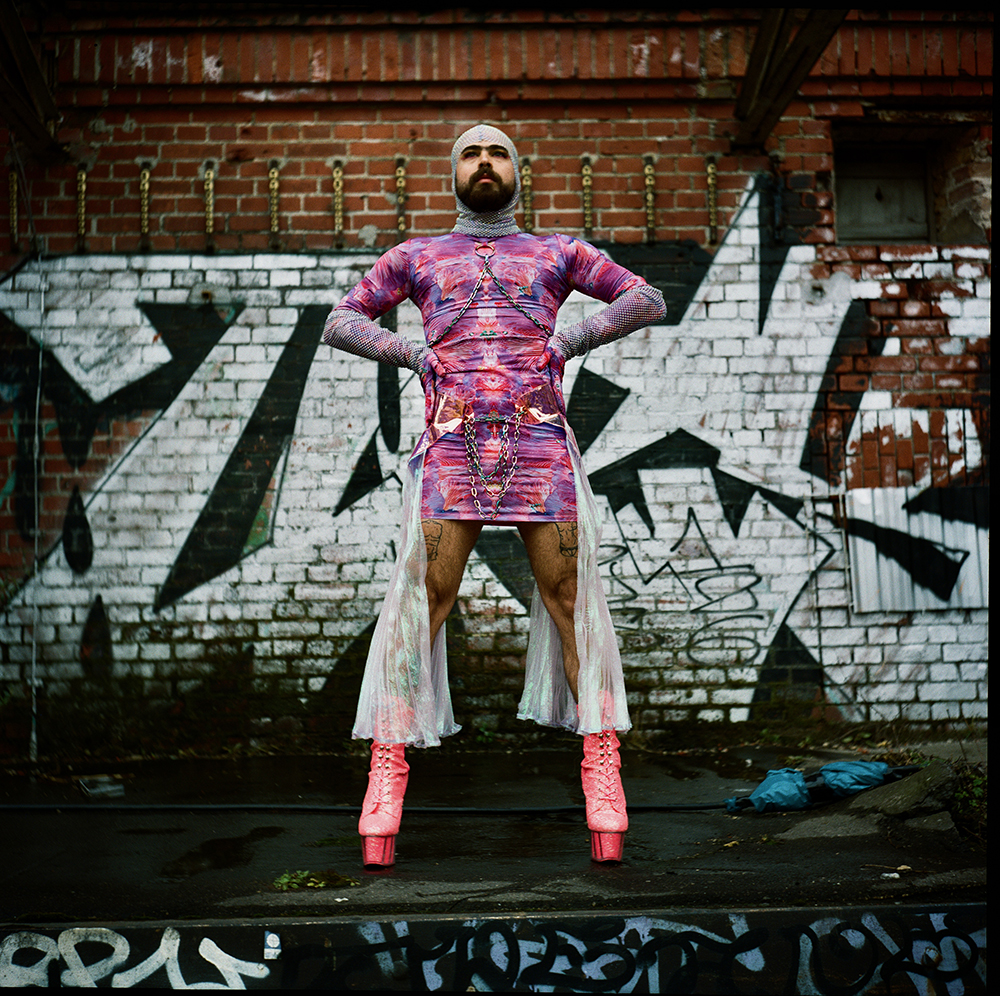
…ultimately, what I’m capturing is the essence of a person. I love depicting who the person is and that is just beautiful because I have a chance to get very close to the core of that person.
Eventually, people started to give me their old cameras telling me “make good use of them”. For that reason, I never had to buy a camera but I rather played with what I was given. I started collaborating more regularly with Lomography UK, Germany, Italy, and France and England was amazing because they organized an exhibition for me in Lomography Soho. They always gave me new lenses to try like the Petzval 58 or the Petzval 85 so I could try everything for free and they used my photographs for advertisement. It was a good deal for both sides.
The more I photographed, the more I cared about the results, and in the end, I learned the technical bits. Now I’ve been shooting for a long, long time. It’s been like 11 years and it has turned into a life passion. Before I discovered photography, everything felt like finding short time passions. I can never tell that I will get bored in a couple of years but so far, It hasn’t happened. It has become a big part of my life and it gives me some freedom that I can’t have in my profession. My job was a beautiful decision, and it pays the bills, it was the “mature” choice. However, there is not much creativity involved. Photographing gives me the possibility to express myself, to be creative, something I always felt very inclined to do since I was a kid.
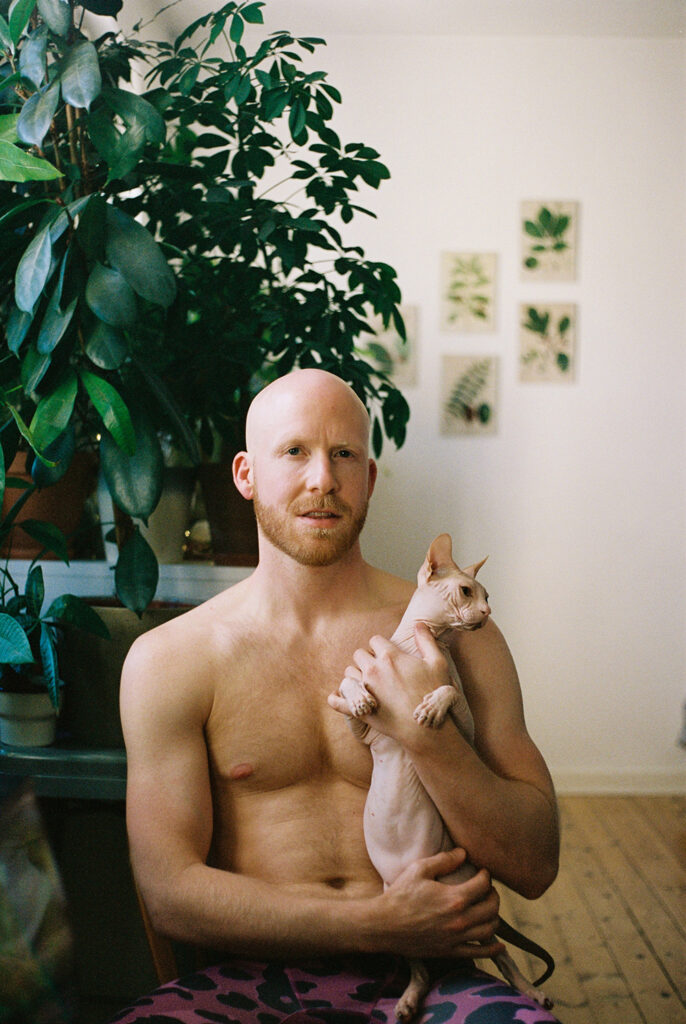
How do you combine your job as a vet surgeon and your photographic practice? Do you have any tips for other polymaths out there?
My profession requires a lot of time and energy. In the beginning, photographing was a way to disconnect my brain a little bit from a very heavy environment. I used to work 10 hours a day when I was working in London and I felt quite frustrated because I couldn’t express this other side of me that needed to come out. During the period I spent in England, I arranged one photoshoot a month. I felt very pressured to create because I only had little time to spend, and I had to make good use of it.
After moving to Berlin, the situation improved, and I decided that working full time wasn’t for me. In Berlin, people don’t expect or push you to work full time, which is very refreshing in a way. So, even when the salary wasn’t great, it was good enough to survive and at the same time, it gave me the chance to have more free time for my own projects.
It is also necessary to note that I’m a very structured person. I wouldn’t say I like wasting time, therefore, if I have two hours, be sure that I’ll make good use of those. Even if I don’t feel like it at the beginning of a photo shooting, as soon as I start I always get in the mood.
My job pays the bills, it allows me to be creative without having the pressure of not knowing how I will make it to the end of the month. Having this kind of security makes me feel true to myself and spend my time wisely.
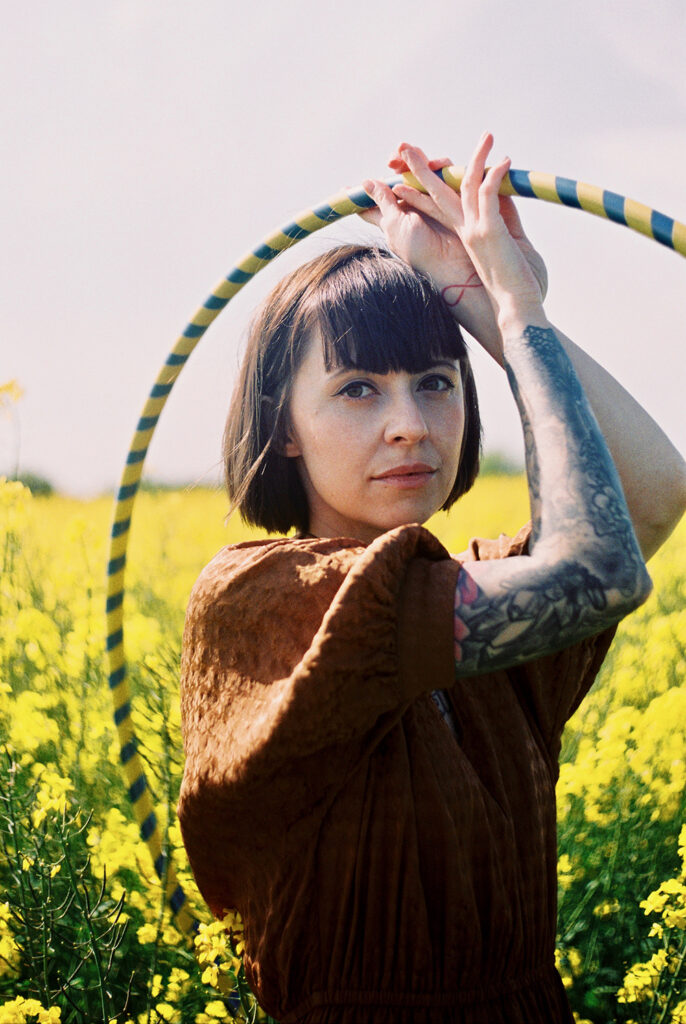
…I never feel like I need to create something according to societal norms or the taste of somebody else. In itself that is transgressive and very liberating: it allows me and my approach to be again, very intimate.
How would you describe your photographic style?
I think my style is very intimate. I would add that, it’s very delicate and soft. And it’s extremely real. I mean, I might come up with concepts or ideas for a project, but ultimately, what I’m capturing is the essence of a person. I love depicting who the person is and that is just beautiful because I have a chance to get very close to the core of that person. Certainly, being the model in a photoshoot makes you very vulnerable!
A session with me is not only about the shooting but also about talking and getting to understand each other. By the end of the session, I just feel close to them, and they feel close to me to the point where even if we are strangers, we feel we have become good friends. It’s a very personal, vulnerable, and intimate process. And it’s truly real, people don’t pretend, they’re just being themselves.
I used to say that I undertake “a soft approach”. It’s pretty much linked to the nature of the analog process: you have 36 pictures, so you take your time and your chance to create something worthy. Unlike digital processes where you might be taking thousands of pictures to eventually select around 20, with an analog camera, you know you only have 36 shots and you will try to turn most of these pictures into good ones.
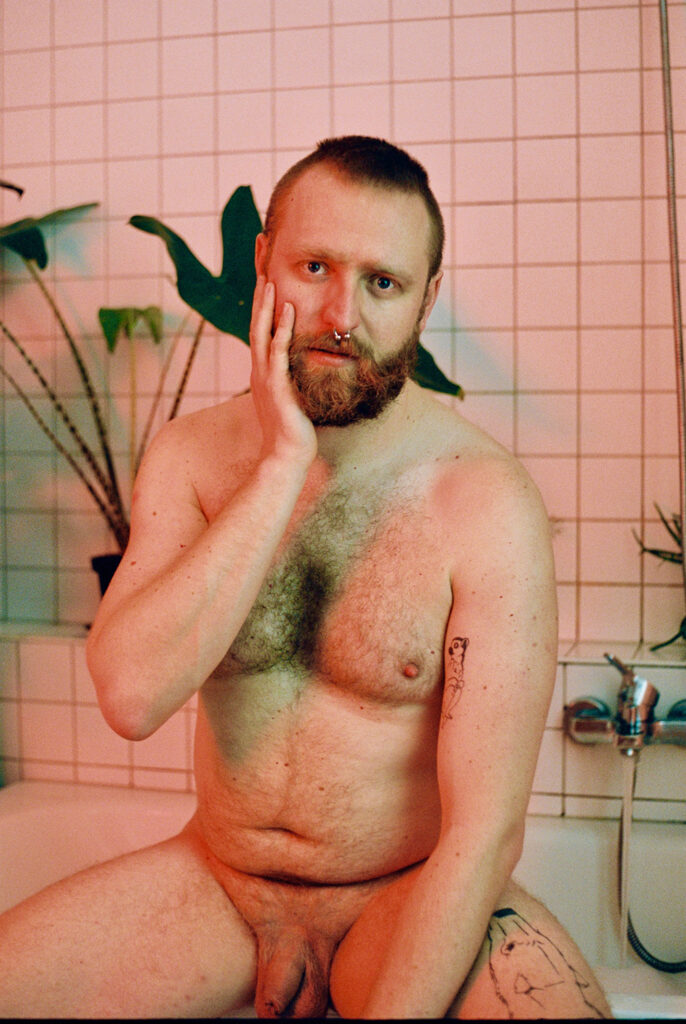
I try to remain open and fluid, I see beauty in everything and everyone. I don’t care about normative binary beauty or constricted views about how to depict masculinity.
You are an analog photographer, how do you think that film photography influences your topics and compositional choices?
I could say it’s definitely the peace. To me, there is a different kind of slower, more careful, and precise approach when dealing with analog processes. The truth is, I don’t want to waste film, I mean, it can be expensive! I really want to make the most of it and that’s the reason I plan everything carefully in advance. What I observe in digital photography is a great deal of attention paid in post-production and not so much in the actual photo shooting.
From my point of view, shooting analog means being in the moment, being present, and accepting the limitations of the medium because what you have in your hands is the final outcome, you won’t be able to change the colors or adjust the brightness in your film photographs. That’s why I put so much effort into every photo shooting and that’s also the reason why I value every single moment of it. It’s a sort of honest meditative relationship with photography.
On the other hand, I have never shot digital so I can’t tell how would I deal with or feel about it, it’s just that some part of me is not interested to be fair, I shoot analog and I want my picture to depict what I saw from the viewfinder at the moment of shooting.
Do you believe that film photography, particularly your photographic practice, is challenging dominant heteronormative narratives?
I’m 100% convinced of it. I’m very true to myself when I photograph, plus I have all the creative control over my photography, I don’t do it for money, I do it as a passion. This means that I never feel like I need to create something according to societal norms or the taste of somebody else. In itself that is transgressive and very liberating: it allows me and my approach to be again, very intimate. Most of my models are friends and they show themselves just as they are, during the shootings there are no limits, only the ones we set ourselves.
I try to remain open and fluid, I see beauty in everything and everyone. I don’t care about normative binary beauty or constricted views about how to depict masculinity. My photographs don’t show the stereotypical toxic portrayal of sexy women or strong, powerful men the way they are usually portrayed in mainstream media. My aim is to have the chance to make people appreciate themselves in a light that they don’t see themselves usually. This position makes me feel very empowered to try new things and perspectives about the people I photograph. And it happens very often that when they look at their photos they get surprised and say amazed: “Oh my gosh! I could never see myself this way!” So, in the end, it’s not only me who feels empowered but also inspires others to feel strong, confident, and self-validated. And to me, this is beauty, this is the most beautiful part of what I do.
Your series “Meet the Berlin Kids” (B L N K D Z ) features a wide diversity of faces and characters, how do you select your models?
I’m very curious about people in general. I get inspiration from others and this could come from an aesthetic or a personality trait, it could also be the wise and brave choices in life that somebody has made. It can be a million different things. That’s why if you check the Berlin Kids there is a wide variety of people involved: different nationalities, ages, beliefs, sexual orientations, or goals in life are portrayed. They don’t necessarily represent what’s the Berliner mainstream taste, they show another face of the city. People in Berlin are not as free to choose as they think, they tend to follow certain trends: wearing black, going to the same clubs, working in creative jobs…there is a lot of pressure to fit within that frame and to me, the Berlin Kids are cool precisely because they show that you don’t have to follow these trends to be a “Berliner”.
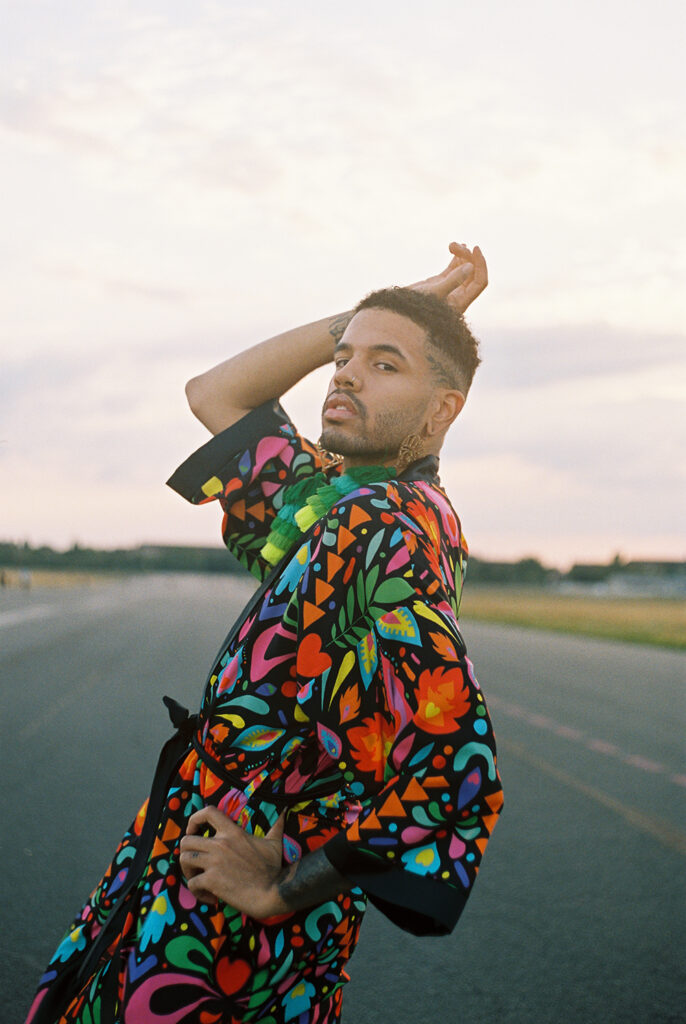
When I choose a model, normally after the session, I always ask them to write a caption about themselves. It is always surprising that in a sense, there is this kind of union, a common denominator that shows how we are all facing the same issues and struggling with the same problems. We think we are all very different, but the truth is, we are all very similar. So I could state that, yeah, there is this sense of community implied in the series. I’m not trying to pick the cool faces of Berlin, I try to remain authentic and display the great diversity of this city instead of showing only what is perceived as cool about Berlin.
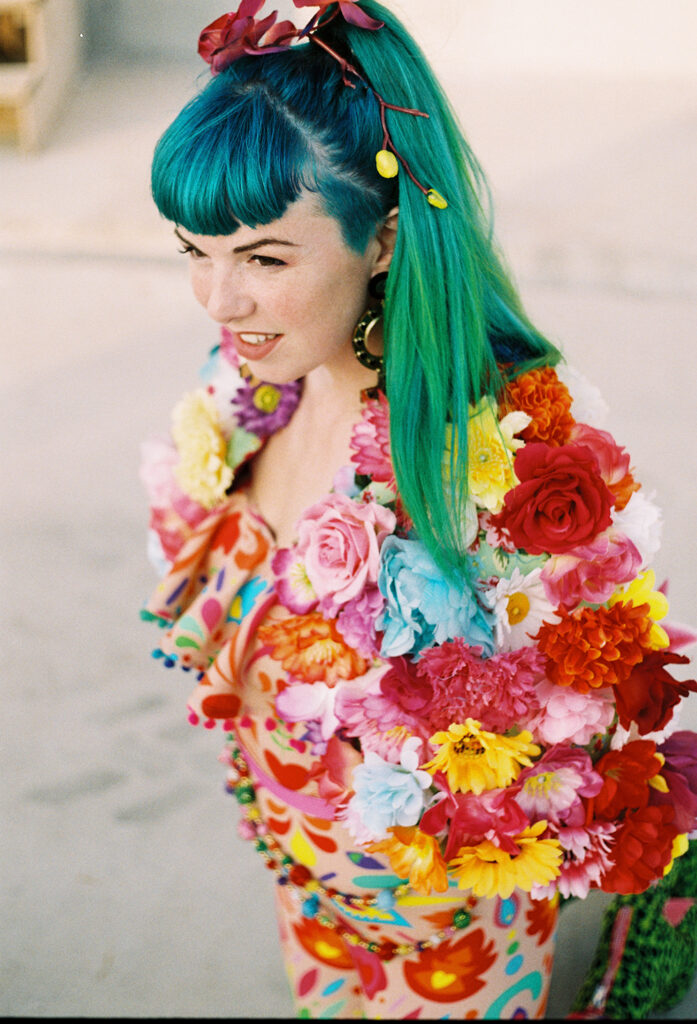
I love confident people who dare to raise their voice and by doing so, raise awareness or simply inspire others. I like people that have opinions, who question their opinions and people who fight for something they believe in. I see a lot of beauty and all of this…
Do you consider BLNKDZ a kind of family album?
Absolutely, these are people that I care about and who really care about me. There is a beautiful connection between us, even if we are not very close sometimes. Most of these people will always be very supportive and I’m extremely grateful for having them in my life in one way or another.
I remember when I did the BLNKDZ exhibition in 2019, it was the first year that I was shooting the Berlin Kids, they got all together at the vernissage and you could sense the connection between them as well. They all feel very proud of belonging to the Berlin Kids family. And I almost feel as protective as a father to my kids (laughter).
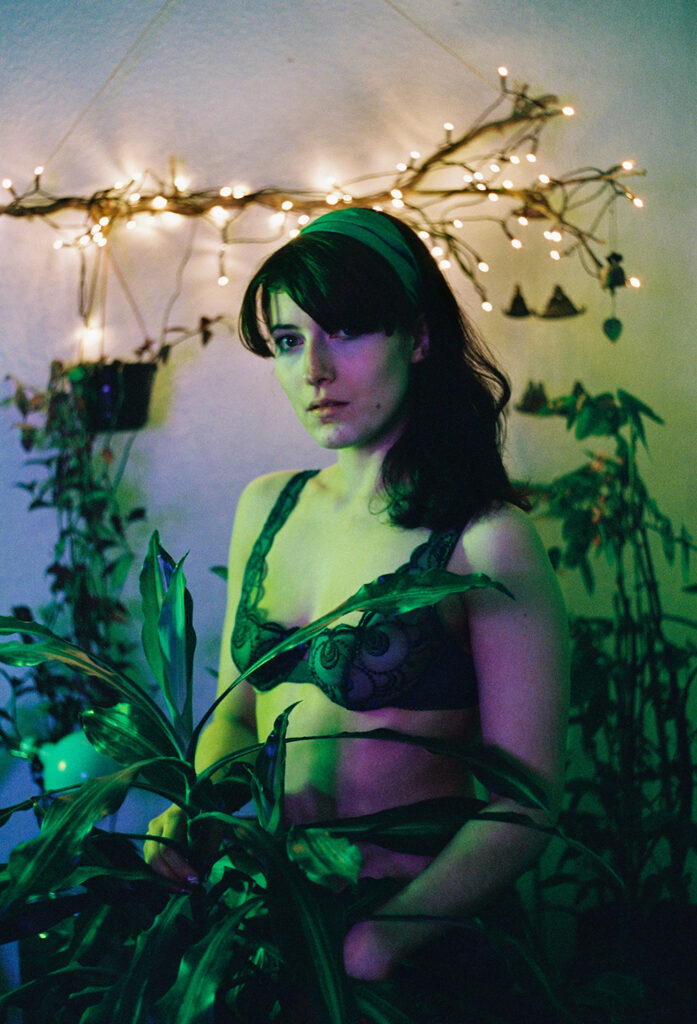
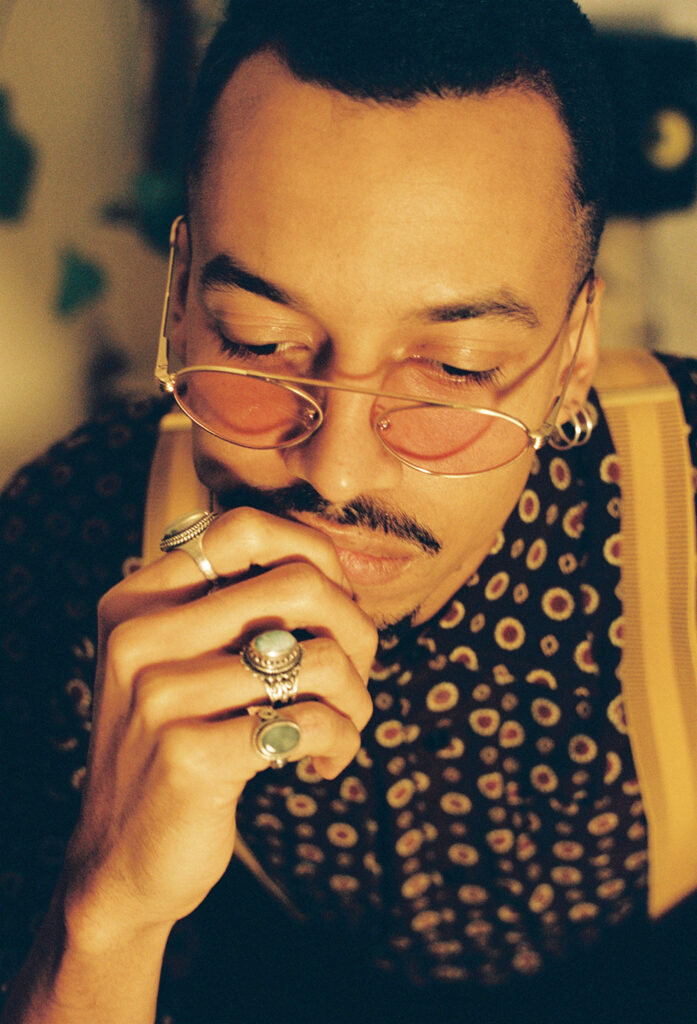
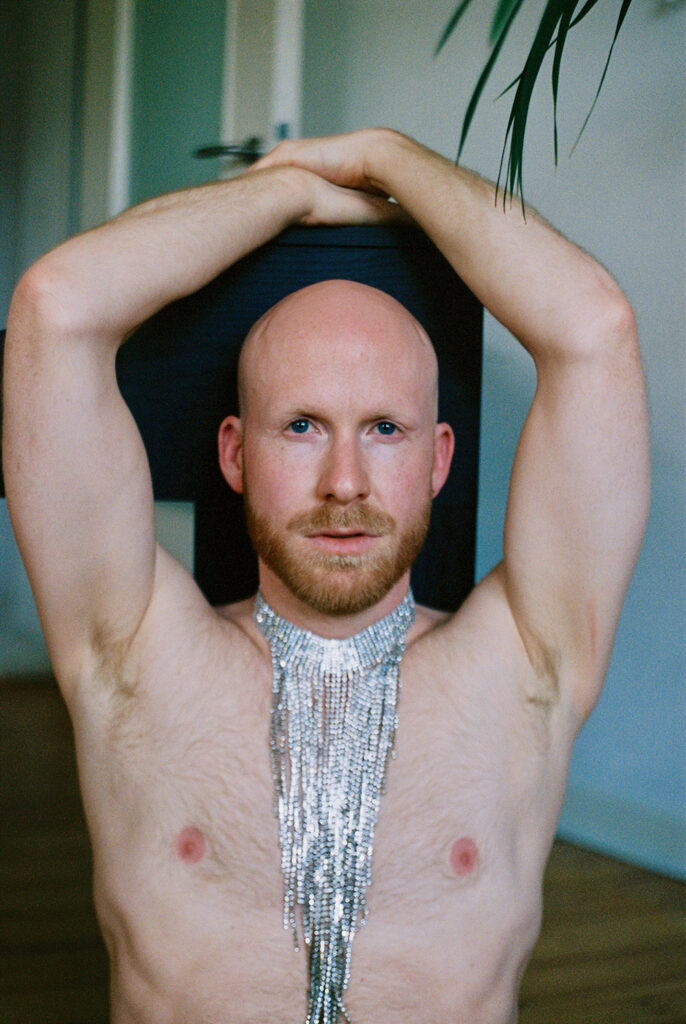
What or who is your biggest inspiration (artistically and in life)?
I don’t come from an artistic background so it is very hard for me to tell. I studied art in secondary school, but I feel it would be a bit pretentious for me to consider myself an expert on the topic. What inspires me the most is actually people, I guess it’s a very cheesy answer but I just love being surrounded by whoever is proud to be who they are. I love confident people who dare to raise their voice and by doing so, raise awareness or simply inspire others. I like people that have opinions, who question their opinions and people who fight for something they believe in. I see a lot of beauty and all of this, which pushes me to keep shooting and share more stories. Stories connect people. So, all in all, I think my biggest inspiration is just people and their uniqueness. People who can be themselves and are proud to be themselves no matter what.
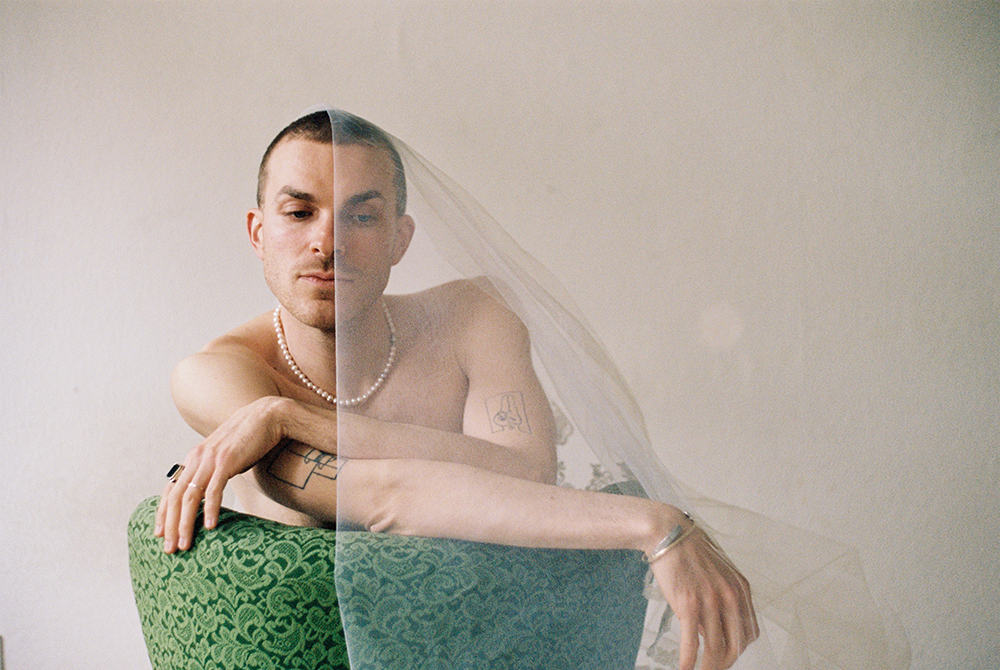
…my biggest inspiration is just people and their uniqueness.
How are you planning to follow up with this ongoing project?
Planning things during corona times can be tricky. Just shooting and putting together the magazine was a good thing for me during pandemics, to acknowledge that after two years of photography I had at least accomplished that. The first year of Berlin Kids ended up with an exhibition and a book while in the second and third years of Berlin Kids I came up with the magazine. For now, I want to keep on going with the project, there are more than a thousand faces out there that I still want to get to know and there are also a lot of kids from previous editions that are coming back with new ideas for photo shoots. There is certainly a lot to discover and there’s no limit to discovery as long as people out there are willing to get involved. It keeps me motivated to keep on going because I see that others appreciate the work behind the project and it’s very flattering, a lot of people are actually aware of the project.
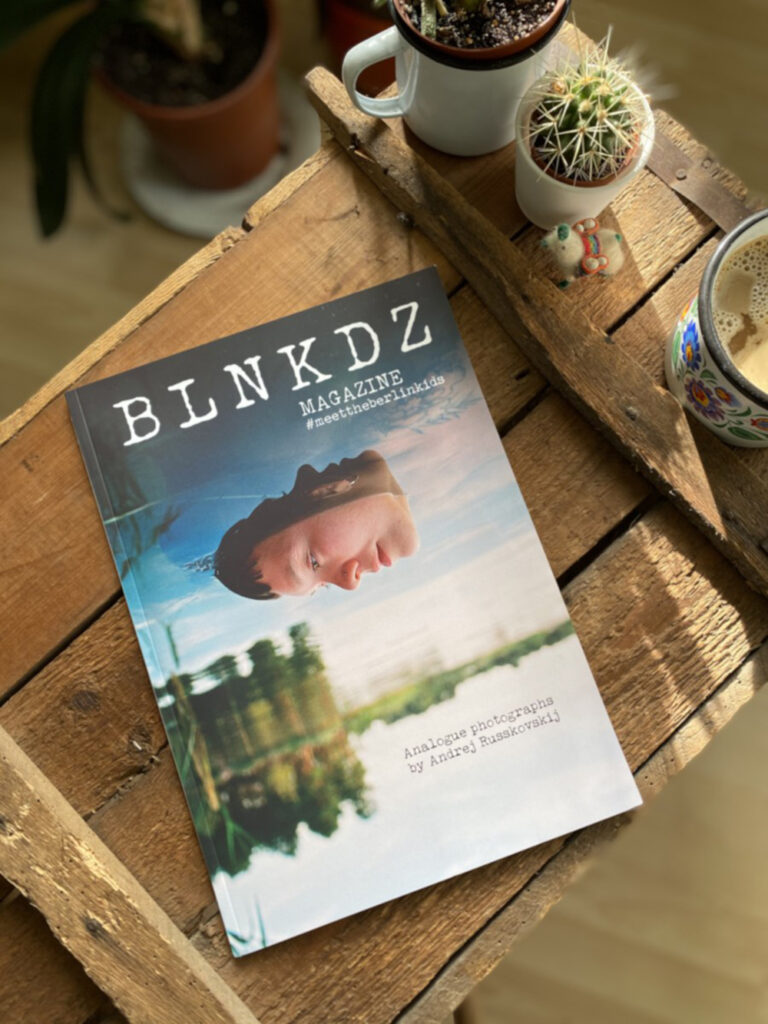
That being said, and after being part of the @iheartberlin exhibition this past June, I would love to organize a second exhibition devoted to the Berlin Kids project. There is always a massive sense of achievement after organizing an exhibition and I would be thrilled if that could happen again. Let’s see!
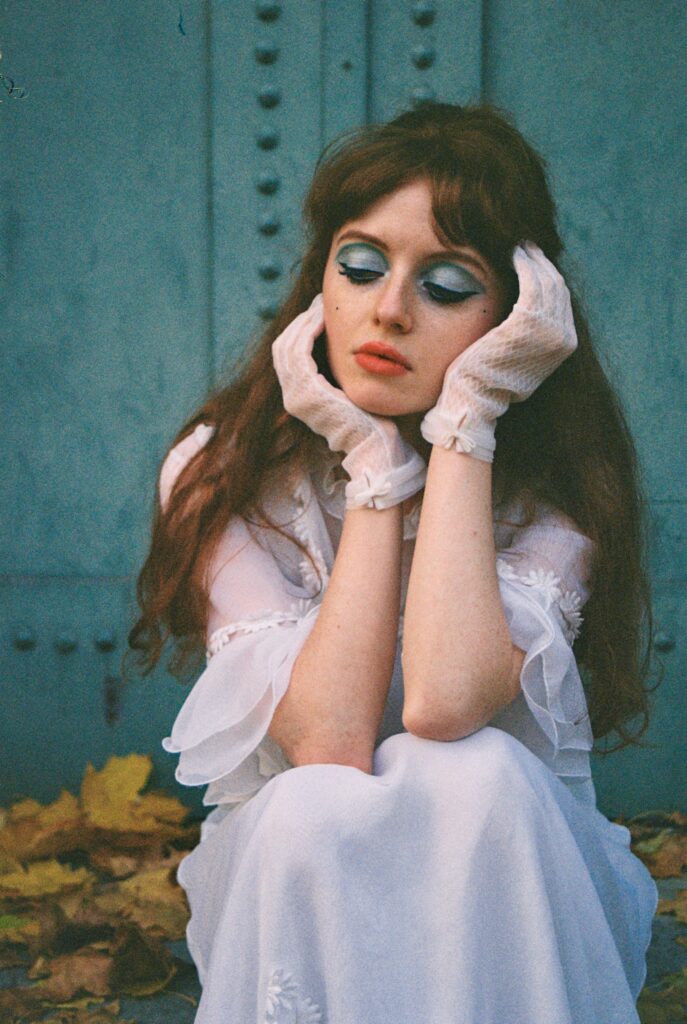
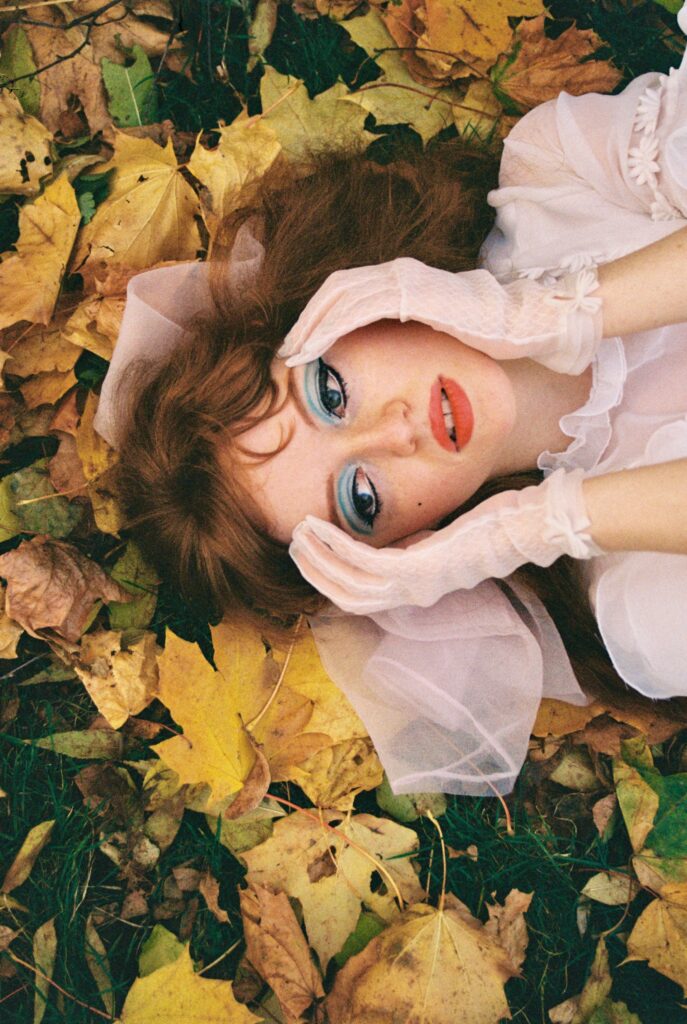
Follow @andrejrusskovskij for more fantastic portraits.
You can get your copy of the BLNKDZ Magazine at www.andrejrusskovskij.com.
Thank you, Andrej!


